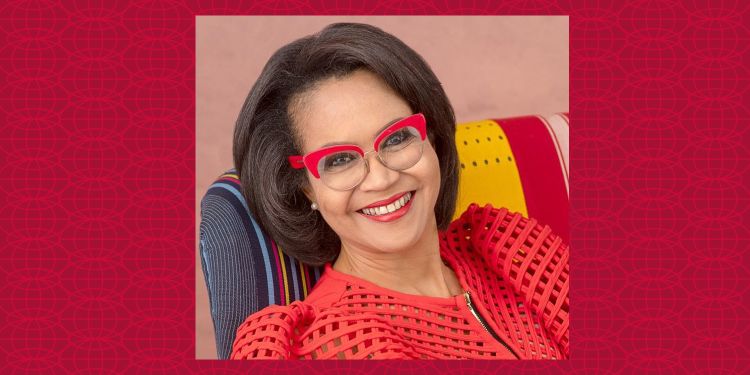Creating Emerging Markets Sustainability Series –Opportunities for Green Entrepreneurship in the Face of Policy Inaction
Cover image features Adenike Ogunlesi
This year’s annual UN conference on climate change, COP28, will take place in Dubai, UAE starting on November 30th. The shadow of grand, but ultimately empty, promises of previous UN conferences looms large. One such promise was made 14 years ago at COP15 in 2009 – a vastly unfulfilled goal by rich nations to channel $100 billion a year to support climate action in less wealthy nations by 2020.[1] The HBS Creating Emerging Markets project has gathered compelling interviews with business leaders in some of the world’s most climate vulnerable countries such as Nigeria, which contends with the desertification of forests, life-threatening flooding, and coastal erosion. Nigeria’s current administration has prioritized climate change interventions, pursuing a strategy to “inform the public of preventive measures that save lives and reduce damage to property and infrastructure.”[2] However, in the absence of substantial international action on climate change, how can the Nigerian public pay the price of adaptation and support the enactment of essential public policies?
In June, Professor Anywhere (Siko) Sikochi interviewed Adenike Ogunlesi, the founder of Ruff 'n' Tumble – a leading children's clothing company based in Lagos. Speaking about the responsibility of business to grow sustainably, she underscores how entrepreneurship has risen to confront environmental challenges that policy alone been unable to address. Bypassing the political fluctuations that lead to inconsistent and unreliable international promises, she discusses ways that sustainable business can meaningfully support action on climate adaptation in Nigeria.
“In Nigeria, where the policy is not driving it, people – based on their exposure and their experience – are actually doing some of these things.” [3]
- Watch Adenike Ogunlesi’s video clip on sustainability in business and take a look at her full CEM interview page here.
In her interview, Ogunlesi offers the example of two women-led businesses that have chosen to confront their local environmental hazards. While addressing different issues, Achenyo Idachaba-Obaro (Founder and CEO of MitiMeth) and Ifedolapo Runsewe (Managing Director of Freee Recycle Limited) share a commitment to green innovations that can transform adversity and environmental waste into prosperity for climate-impacted communities in Nigeria.
Achenyo Idachaba-Obaro is the Founder and CEO of MitiMeth, a company that uses water hyacinth, an invasive aquatic weed, to craft fashion accessories and handmade home décor. Idachaba-Obaro was born in the US to Nigerian parents. She obtained a Computer Science degree and worked as an analyst with ExxonMobil before deciding to quit her job and return to Nigeria in 2009. She describes how her decision came from a “sense of conviction that there was a lot to do in Nigeria in the area of sustainable development.”[4] Upon her return, she observed the impact of water hyacinth upon Nigeria’s waterways. With warming temperatures, the weed has proliferated – depleting fisheries, blocking navigation, and devastating the livelihoods of coastal communities reliant on fishing.[5] Enlisting support from local communities, she developed a process to turn the weeds into a material that can be used to weave diversified products. Today, MitiMeth trains artisans in this process, providing income earning opportunities for rural women and youth in Nigeria.
To learn more, watch Achenyo Idachaba-Obaro’s TED Talk, available here:
Ifedolapo Runsewe is the Managing Director of Freee Recycle Limited, an industrial plant that transforms used car tires into paving bricks for driveways and playgrounds. Having previously worked as a banker, she started the company in 2018 to tackle the environmental degradation resulting from the disposal and burning of car tires in Nigerian landfills. Due to tropical weather conditions, the pile-up of old car tires which collect stagnant water has also contributed to the spread of diseases such as malaria – a health concern that has bolstered the need to address this severe environmental threat.[6] Freee Recycle continues to grow its operations in Nigeria and plans to expand in neighboring countries, rapidly hiring factory workers and providing compensation for those collecting tires from local dumping sites.
Learn more by watching this video from Business Insider, featuring Ifedolapo Runsewe:
- One Nigerian Entrepreneur's Solution For Millions of Old Tires | World Wide Waste | Insider Business.
----------
[1] Jocelyn Timperley. “The broken $100-billion promise of climate finance — and how to fix it.” Nature, 20 October 2021.
[2] Leon Usigbe. “Nigeria prioritizes climate action to mitigate natural disasters.” United Nations Africa Renewal, 6 September 2023.
[3] Interview with Adenike Ogunlesi, interviewed by Anywhere Sikochi, Lagos, Nigeria and Boston, MA, USA, 7 June 2023, Creating Emerging Markets Oral History Collection, Baker Library Special Collections and Archives, Harvard Business School, p. 44.
[4] TED Conference. “Achenyo Idachaba: How I turned a deadly plant into a thriving business | TED.” YouTube, 11 February 2016.
[5] Lauren Said-Moorhouse, Carla Wanyika and Florence Obondo. “Woven wonders from water weeds and waste.” CNN, 2 January 2015.
[6]
Business Insider. “One Nigerian Entrepreneur's Solution For Millions of Old Tires | World Wide Waste | Insider Business.” YouTube, 2 October 2023.

